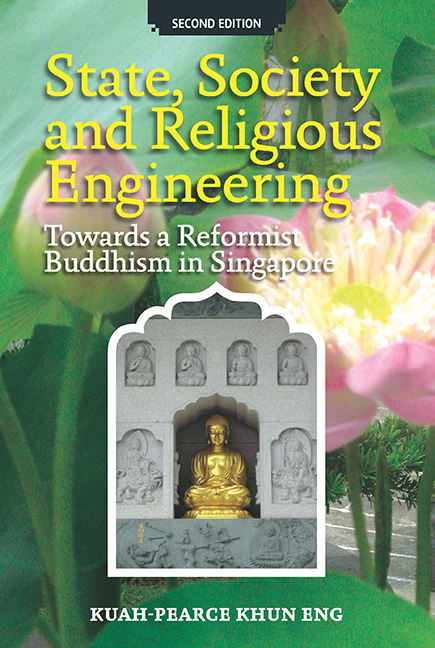Book contents
- Frontmatter
- Contents
- List of Diagrams
- Note on Romanisation
- Preface to the Second Edition
- Acknowledgements to the Second Edition
- Introduction
- PART 1 INVENTING A RELIGIOUS TRADITION
- PART 2 STATE, SOCIETY AND RELIGIOUS ENGINEERING
- PART 3 TOWARDS A REFORMIST BUDDHISM
- 7 Towards a Reformist Buddhism
- 8 Members and Their Religiosity
- 9 Competing Claims of Modernity and Class Identity: Christianity versus Reformist Buddhism
- Conclusion
- Postscript to the Second Edition: Towards a Humanist and Socially-engaged Buddhism
- Glossary
- Bibliography
- Index
7 - Towards a Reformist Buddhism
from PART 3 - TOWARDS A REFORMIST BUDDHISM
Published online by Cambridge University Press: 21 October 2015
- Frontmatter
- Contents
- List of Diagrams
- Note on Romanisation
- Preface to the Second Edition
- Acknowledgements to the Second Edition
- Introduction
- PART 1 INVENTING A RELIGIOUS TRADITION
- PART 2 STATE, SOCIETY AND RELIGIOUS ENGINEERING
- PART 3 TOWARDS A REFORMIST BUDDHISM
- 7 Towards a Reformist Buddhism
- 8 Members and Their Religiosity
- 9 Competing Claims of Modernity and Class Identity: Christianity versus Reformist Buddhism
- Conclusion
- Postscript to the Second Edition: Towards a Humanist and Socially-engaged Buddhism
- Glossary
- Bibliography
- Index
Summary
INTRODUCTION
In the process of religious modernisation, the state, the lay community and the Sangha have engaged in various strategies to speed up the process of change. Each group modernises the religion according to its own agenda. Despite the differences, they have all worked towards a singular goal of promoting Reformist Buddhism as a modern religion.
In Shenist practice, it is the ritual that takes centrestage; but in Reformist Buddhism, it is the Buddhist ideology that is the key concern for the adherents. Reformist Buddhism adopts various scriptural tenets from the different Buddhist traditions to answer contemporary needs. Its primary focus is not on the attainment of enlightenment. It is more concerned with this-worldly needs, and it argues that near salvation can be attained in this world and in one's lifetime. Monkhood is only one path to salvation. The other path is to pursue various spiritual and socio-welfare activities to attain this-worldly salvation. Reformist Buddhism is seen as a modern religion that focuses not only on the Buddhist doctrine but also on the socio-cultural and welfare aspects of the society. It is a scriptural religion as well as a social religion, and provides time and space for members to interact in a religiously and socially intimate way. At the same time, it is also a compassionate religion, in that it cares for the socially less-abled and less-privileged people both within Singapore and abroad. It therefore appeals both to the younger as well as the older generations of Singapore Chinese of all classes.
(a) Central Tenets of Reformist Buddhist Teaching
Although Reformist Buddhism adopts various aspects of scriptural knowledge from the different Buddhist traditions, there are key tenets that it expounds to its members and the general public. The key scriptural tenets are (i) the doctrine of causation, i.e., the Four Noble Truths; (ii) the theory of Karma, Rebirth and Merit-making; (iii) Morality and Ethic; (iv) Buddhist Work Ethics; (v) Compassion and Humanity; and (vi) the Eightfold Path. The central idea behind the selection of these various Buddhist teachings is to enable the followers to understand the meaning of life through the Buddhist understanding of suffering and the ability of individuals to reduce the level of suffering through their own actions in both the religious and secular spheres. Let us explore briefly the key Buddhist teachings.
- Type
- Chapter
- Information
- State, Society and Religious EngineeringTowards a Reformist Buddhism in Singapore (Second Edition), pp. 223 - 250Publisher: ISEAS–Yusof Ishak InstitutePrint publication year: 2009

